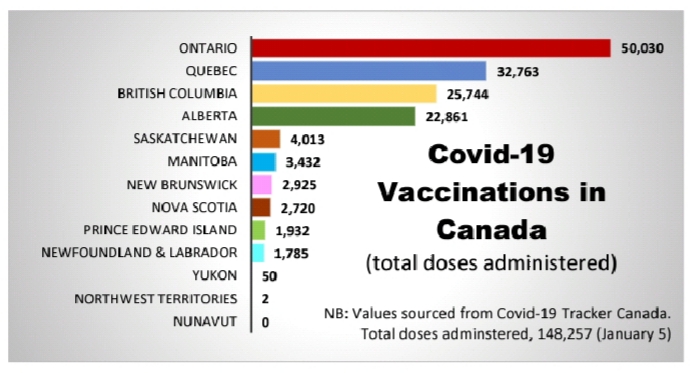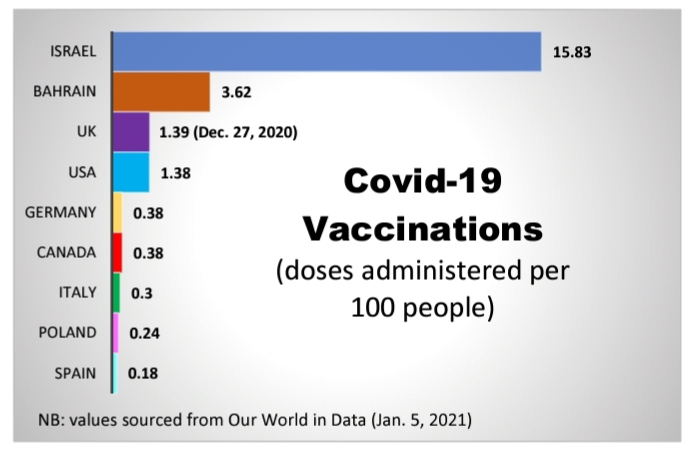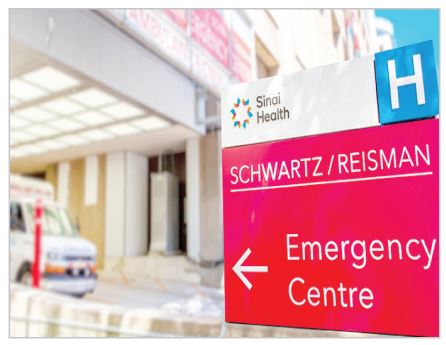Derelict admin: Canada lags in the race to vaccinate
TORONTO – The new year should bring a renewed sense of hope and optimism. Despite being in the middle of a global pandemic, Canadians were hopeful that life would soon return to normal.
Afterall, our country was one of the first in the world to approve the Pfizer-BioNTech Covid-19 vaccine early in December 2020.Things looked promising.
Our “officials” administered the first doses on December 14, as Canada joined the “race to vaccinate” against Covid-19. Since then, we added the Moderna vaccine to the arsenal of weapons to com-bat a virus that has infected over 615,000 Canadians, to date, and claimed the lives of more than 16,000 citizens. So far, according to the Covid-19 Tracker Canada, a total of 420,450 doses have been delivered to provinces and territories across Canada. Not much.
Both vaccines require two doses at different intervals – 21 days apart – for full efficacy. This means that Canada has enough doses to vaccinate just over 210,000 people.
As of January 5, 2021, just 148,257 doses (35.26% of the total available on December 14) have been administered. That represents a mere 0.39% of the Canadian population with at least one dose.
The vaccines may only begin to do the job they were designed to do once injected into the arms of people, despite what General Hillier may think.
On January 4, 2021, Canada administered approximately 25,000 doses of the vaccine. If the goal is to vaccinate the majority of the population – scientists claim we need 80% to be inoculated in order to protect the population – it would take roughly six years to do so at this rate.
Who to vaccinate first? The most fragile and the most vulnerable? In this first phase of the vaccine rollout, priority has been given to frontline healthcare workers, residents in long-term care homes, seniors aged 80+ and adult Indigenous communities.
On January 4, the first “front-line health care workers” who received their Covid-19 vaccine in Ontario, were inoculated with the second dose.
Research studies show that the Pfizer vaccine is 95% effective seven days after the second dose is administered. Only time will tell how the vaccines do over the long term. Presumably, the earlier one starts the sooner one gets results.
The Province has received much criticism over the decision to pause vaccinations over the holidays. The province and the nation need to “pick up the pace” of inoculations.

Canada is well behind in the vaccination race when compared to other nations like the USA and the UK. According to Our World in Data (figures complied in the graph are sourced from various governments and ministries of health), which provides a measurement of how many vaccination doses have been administered per 100 people of population, Canada is only at 0.38, far below that of the Americans at 1.38.
In Italy, one of Europe’s earliest and worst-hit countries, is just below Canada at 0.3. Their vaccination campaign only began on December 27 -13 days after Canada.
However, no country is anywhere near Israel in the rate of vaccinations administered in that country, 15.83 (as of January 5).
In eleven months, the world has gone from knowing about the virus to isolating it, to developing a vaccine and now to inoculating people.
With the new strain of virus known to spread more rapidly now present in 33 countries, the race to vaccinate has taken on new urgency.




